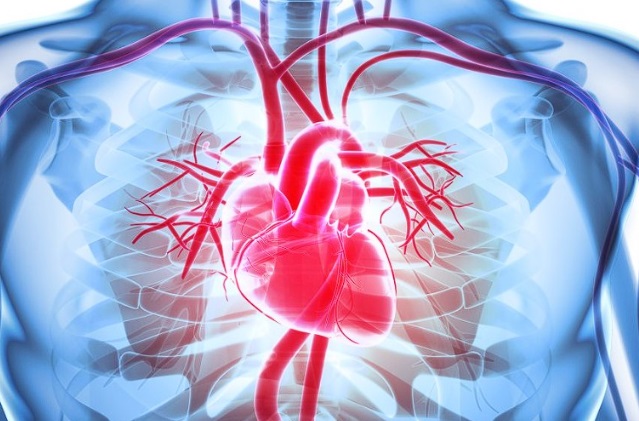Nikhil Prasad Fact checked by:Thailand Medical News Team Jul 25, 2025 7 months, 3 days, 14 hours, 41 minutes ago
Medical News: Subtle but Real Heart Rhythm Shifts Found in Healthcare Workers Post COVID
Even mild to moderate cases of COVID-19 could leave behind subtle and lingering changes in heart rhythm, according to a new study from the Department of Biomedicine and Prevention at the University of Rome Tor Vergata, Italy. Researchers closely monitored the electrocardiographic (ECG) patterns of 151 unvaccinated healthcare workers who had recovered from laboratory-confirmed SARS-CoV-2 infections during the early waves of the pandemic.
 Mild COVID-19 Triggers Long-Lasting Subtle Heart Changes
Mild COVID-19 Triggers Long-Lasting Subtle Heart Changes
These participants—all free of preexisting cardiovascular issues—underwent a series of ECGs: one before infection, one within 6 to 12 months after recovery, and another more than 12 months later. This
Medical News report highlights how even a seemingly mild infection may leave traces in the body’s electrical heart patterns long after the virus is gone.
Heart Rate and PR Interval Changes Noted Over Time
The study found that average heart rates rose slightly in the early months following COVID-19 but typically returned to normal over time. Interestingly, one of the most persistent findings was a mild but statistically significant shortening of the PR interval—the electrical signal time between the upper and lower chambers of the heart. This change, which was more pronounced in male participants, was still present over a year after the infection.
Importantly, the researchers observed no serious or dangerous arrhythmias, conduction blocks, or major disruptions in other ECG markers like the QRS duration or QTc interval, which often signal more severe heart problems. The shortening of the PR interval may reflect a temporary or possibly lasting shift in the autonomic nervous system, the part of the body that helps regulate heart rhythm automatically.
Key Study Findings Offer Reassurance for Most
At the 12-month mark, the study showed:
-A transient spike in heart rate at 6–12 months post-infection, returning to near baseline by >12 months
-Persistent shortening of the PR interval (average reduction of 5–10 ms), more marked in males
-No lasting changes in QRS or QTc durations
-No arrhythmias or serious conduction issues
These findings suggest that, while COVID-19 can temporarily alter heart conduction, the effects are typically mild and self-resolving, particularly in young, healthy adults.
Conclusions and Clinical Implications
This study suggests that mild COVID-19 can subtly influence heart function for more than a year, even in people without underlying conditions. However, the changes observed—mainly PR interval shortening—are minor and unlikely to have serious clinical consequences in most cases. This reassures both healthcare providers and patients that routine long-term heart monitorin
g is not necessary for asymptomatic individuals. Still, continued observation and further studies are needed to better understand whether these subtle changes indicate deeper autonomic shifts in vulnerable populations.
The study findings were published in the peer reviewed journal: Healthcare
https://www.mdpi.com/2227-9032/13/15/1799
For the latest COVID-19 News, keep on logging to Thailand
Medical News.
Read Also:
https://www.thailandmedical.news/news/how-covid-19-triggers-brain-inflammation-leading-to-dangerous-neurological-conditions
https://www.thailandmedical.news/news/sars-cov-2-destroys-heart-cell-mitochondria-leading-to-dangerous-long-covid-cardiac-issues
https://www.thailandmedical.news/news/alarming-rise-in-brain-degeneration-risks-after-covid-19-infection-sparks-global-medical-alert
